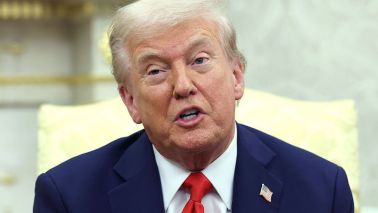Vaclav Havel, Timothy Garton Ash, Bernard-Henri Levy and Adam Michnik are among those calling for the EU to take a stronger line with Russia on matters Georgia. They write:
Looking at Europe today, it is abundantly clear that history has not come to an end and that it remains tragic. Twenty years after the emancipation of half of the continent, a new wall is being built in Europe – this time across the sovereign territory of Georgia.
This presents a major challenge for the citizens, institutions and governments of Europe. Are we willing to accept that the borders of a small country can be unilaterally changed by force? Are we willing to tolerate the de facto annexation of foreign territories by a larger power?
In order for the forthcoming historic commemorations to be meaningful both for Europe’s collective identity and for its future, we urge the EU’s 27 democratic leaders to define a proactive strategy to help Georgia peacefully regain its territorial integrity and obtain the withdrawal of Russian forces illegally stationed on Georgian soil.
Nobody wants a confrontation with Moscow or a return to the hostile atmosphere of the cold war. But, equally, it is essential that the EU and its member states send a clear and unequivocal message to the current leadership in Russia.
[…] A big power will always find or engineer a pretext to invade a neighbour whose independence it resents. We should remember that Hitler accused the Poles of commencing hostilities in 1939, just as Stalin pinned the blame on the Finns when he invaded their country in 1940. Similarly, in the case of Georgia and Russia, the critical question is to determine which country invaded the other, rather than which soldier shot the first bullet.
Second, the failure of western democracies to respond to the dismemberment of a friendly nation, albeit a small one, can have very serious global consequences.
The European Union was built against the temptation of Munich and the iron curtain. It would be utterly disastrous if we were to appear in any way to condone the kind of practices that plunged our continent into war and division for most of the last century. At stake is nothing less than the fate of the project to which we continue to dedicate our lives: the peaceful and democratic reunification of the European continent.
Well, fine. But what if it isn’t possible to “send a clear and unequivocal message” to Russia without risking “a confrontation with Moscow”? To what extent is the fate or status of South Ossetia worth such a message or such a confrontation?And while one can have every sympathy for Georgia’s predicament – and deplore Moscow’s actions – these matters aren’t, I think, as simple as the authors would have us believe. Again, is Georgia more important than acquiring Russian assistance in dealing with Iran? Perhaps it is. But maybe not. At some point there needs to be an ordering of priorities and, alas, a recognition that we probably can’t get everything we want.
This is not especially agreeable, but nor does it seem avoidable. Russia has interests too and its unrealistic to expect it to abandon them without receiving something in return, no matter how distasteful we may find it. The unfortunate truth is that Russia has the upper-hand.
And while one may say that Russia’s reaction to Georgian provocation was disproportionate and unseemly, that provocation was itself reckless and dangerous. As the history of our own island tells us, when you’re in bed with an elephant it’s wise to act prudently.
For that matter, the small question of what the South Ossetians wish themselves seems to be of little interest or import. The uncomfortable reality seems to be that they would rather, if given the choice, be Russian than Georgian. And since, from a Russian perspective, the west insisted upon the dismemberment of a small nation – Serbia – Moscow may ask why it’s permissable for Kosovars to “liberate” themselves from Belgrade but not for South Ossetians to free themselves from Tbilisi?
Sure, we may feel that the situations re scarcely comparable but that’s not so obvious from the Russia perspective.
No-one much cares for swallowing a fait accompli but I suspect that’s what we’ll have to do in the Georgian case. This is distasteful and perhaps even shabby too. But Im not sure we really do Georgia any favours by suggesting that we’ll write Tbilisi more cheques we have no real intention, when push comes to shove, of honouring. Indeed, doing that in the past contributed to the present sorry state of affairs in the Caucasus.
Fine words and finer sentiments are all very well and good but unless we’re really prepared to back them with action we might be better advised just to keep quiet. As I say, this is not especially ennobling but there you have it.






Comments